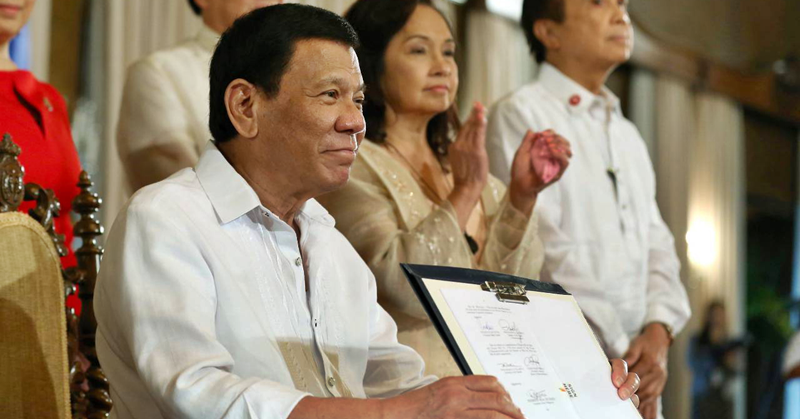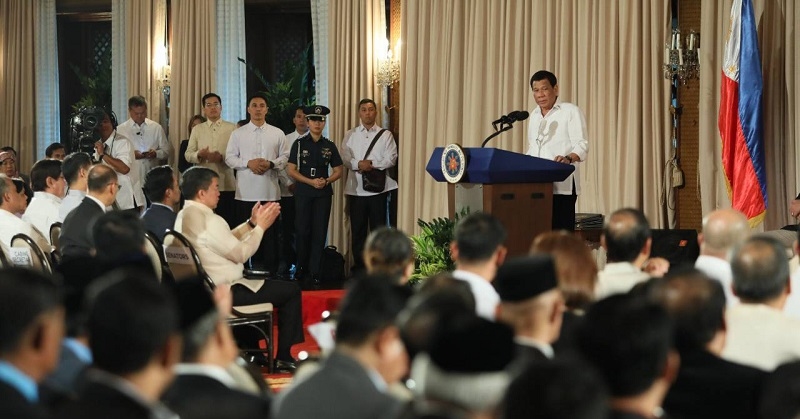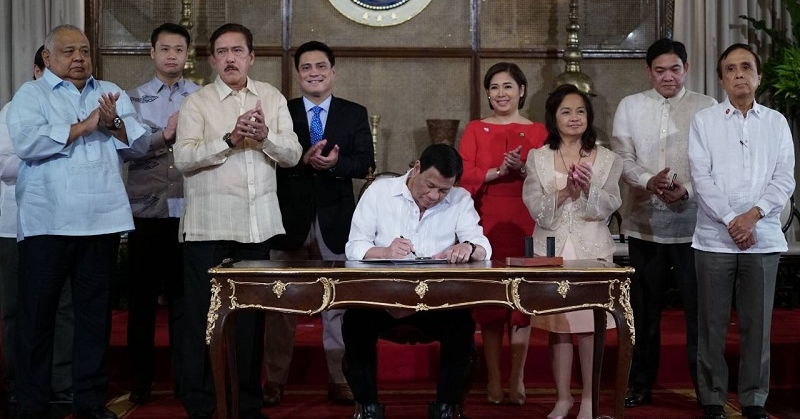Last Aug. 6 (Monday), Philippine President Rodrigo Duterte signed the national ID system into law, which aims to create a unified and integrated national ID to be used by all citizens and foreign nationals residing in the Philippines.
The President officially approved the enactment of Republic Act 11055 or the Philippine Identification System Act (PhilSys Act) during the same event that an equally crucial law, the Bangsamoro Organic Law (BOL), was presented to Al Haj Murad Ebrahim, the Chair of the Moro Islamic Liberation Front (MILF) in Malacañang, as reported by the Philippine News Agency.
The signing of the PhilSys Act, according to the President in his speech at the event, is a measure to establish a single unified national ID system that will ensure good governance, facilitate better governmental transactions and procedures, and establish a system that is more conducive for trade and commerce to grow.

President Duterte Inks National ID System into Law
In line with this development, the President also assured the public that the government will safeguard all information that will be stored in the Philsys database, despite the threat of data breach and concerns over violation of privacy.
Currently, the Philippines has several government-issued IDs, including the Unified Multi-Purpose ID (UMID) issued to members of the Social Security System (SSS) and the Government Service Insurance System (GSIS), the Philippine Health Insurance Corporation (Philhealth) ID, the Tax Identification Number (TIN) ID, and the Home Development Mutual Fund (HDMF) or Pag-IBIG Card.
Promoting Efficiency, Removing “Red Tape”
The President sought the support of the public on the use of the National ID system or the “Phil-ID”, which, according to him, would promote a more efficient system in terms of operational service and delivery, as well as limit the opportunity for corruption and “red tape” within the government.

In response to the critics of the national ID system, the President explained that the information to be included in the Phil-ID will be no different from what the Philippine Statistics Authority (PSA) or formerly known as NSO, PhilHealth, GSIS, COMELEC, Pag-Ibig Fund, and other government agencies that handle public data information possess.
Preparing for Implementation
Furthermore, the President shared that the PSA will conduct its operation in collaboration with the National Privacy Commission, the Department of Information and Communications Technology, as well as the multi-agency PhilSystem Policy and Coordination Council to ensure that all concerns regarding privacy and security are sufficiently addressed.
The PSA will spearhead the implementation of the national ID system. And according to Lisa Grace Bersales, National Statistician and Civil Registrar General, months after the signing of the national ID act, the PSA will conduct pilot tests of the system in various regions in the country. These will sort out the registration process prior to the 5-year implementation schedule of the system starting 2019.

The signing of the National ID Law is yet another major achievement under the current administration, benefiting Filipinos both inside and outside the country. Aside from this, here are the OFW programs launched during President Duterte’s administration.